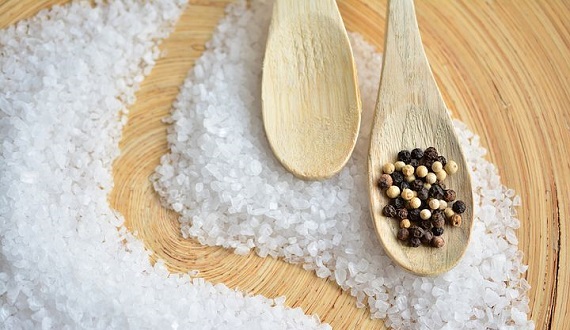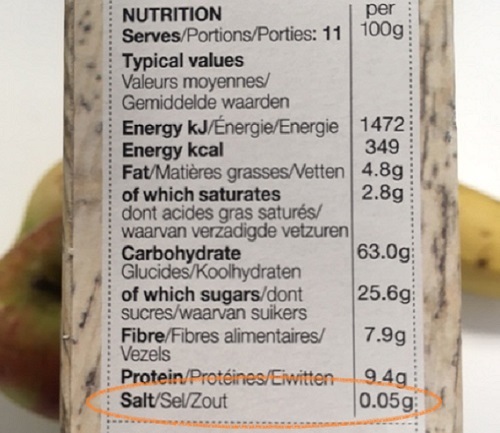Salt (sodium chloride) has been on the table for hundreds of years, preserving fish and meat and enhancing flavours in our food. In the right amount, salt is a vital part of our diet, controlling fluid in the body and helping our muscles and nerves work. However too much salt can cause high blood pressure, leading to an increased risk of stroke and heart disease and is associated with other health problems such as kidney disease and osteoporosis.
The body only requires 1g salt per day and the maximum recommended daily amount for adults is 6g per day (about a teaspoon). About three quarters of the salt we eat comes from foods that we buy. This is due to the natural presence of salt in food or through the manufacturing processes used, particularly for processed and long shelf-life products. Some common foods high in salt include cured meats, cheese, gravy granules, olives, salted and smoked fish, salted nuts and pickles.



